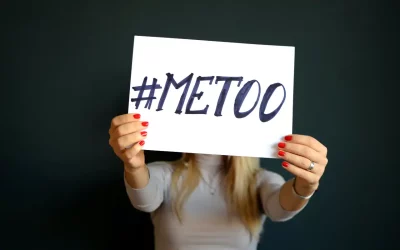Restraining Order Attorney
Fear at home does not need to be compounded by anxiety about legal filing and bureaucracy. Get the help you need for your safety.
If you are reading this page about California restraining orders, please take a moment to consider your safety. Your computer likely has a History of sites visited, and these crumbs can tell others in your household what sites you have visited. If you are unsafe, please call for help immediately.
For victims of domestic violence or any form of abuse, whether it be physical, emotional, or verbal, a restraining order may need a restraining order for protection. The protection obtained through a restraining order can not only protect you and your loved ones, but your property and livelihood as well. A restraining order offers protection from physical and/or mental abuse.
Family Law Restraining Orders, contrary to civil harassment Restraining Orders, require as showing that you have or had a close personal relationship with the person you are seeking protection from, and that individual had or currently has, the opportunity to abuse you in some way. Forms of abuse include, but are not limited to, kicking, hitting, following/stalking, and harassment.
Through a restraining order, you may obtain protection for yourself, your children, and any other household residents. A judge can craft a restraining order to suit your needs.
Temporary Restraining Orders or “TROs” can be obtained with little to no notice, depending on the circumstances. Hiring an attorney to help you in this process is advised, but not required. Contact us and we can help you.
What Restraining Orders Do and What They Don’t Do
To protect you and your children, one of the several types of California restraining orders can help.
A restraining order is an order of the court. It can be crafted in various ways; however, it can order the restrained person to:
- Abstain from contacting you or any member of your household;
- Stay away from you, your children, or others who live with you, regardless of where you are;
- Stay away from your work, school, or your children’s school;
- Not possess or own any firearms.
Once the court issues a restraining order, it goes into a statewide computer system called the California Law Enforcement Trafficking System (CLETS), which allows law enforcement officers throughout the state to see that a restraining order has been issued.
For the restrained person, the consequences of having a court order can be severe.
- They will not be able to go to certain places or to do certain things.
- They are typically not able to own a gun. (Any guns in their possession would have to be turned in, they would not be able to sell any guns they have and would not be able to buy a gun while the restraining order is in effect.)
- The restraining order may affect his or her immigration status. If you are a person to be restrained and you are worried about this, talk to an immigration lawyer to find out if you will be affected.
- A violation of the restraining order, can result in jail, fines, or both.
Types of Restraining Orders
Restraining Orders come in various forms, each with their own eligibility requirements and steps that you must take to obtain the restraining order you need. Below is a list of restraining orders which can be sought.
Emergency Protective Order (EPO)
Protects victims of abuse, serious harassment, or stalking. An emergency protective order is granted by a Judge, often on call, and sought by law enforcement upon probable cause that one is necessary.
Domestic Violence Restraining Order (DVRO)
DVRO’s requires that a specific relationship either exists or existed, between the Restrained Party and the Protected Party.
These relationships include a spouse or former spouse, a person you are dating, or a person you have dated; lover; mother or father of your child; anyone closely related to you by blood marriage or adoption (example: mother, father, child, brother, sister, grandparent); or a person who regularly lives in your home.
Such protections do not require physical conduct or abuse. Firearms restrictions are a part of DVRO’s.
Elder or Dependent Adult Abuse Restraining Order
Protects elders and dependent elder and vulnerable adults from physical and financial abuse, neglect, isolation, abduction, harm, or deprivation by a caregiver.
Workplace Violence Restraining Order
A Workplace Violence Restraining Order provides employees with protection from workplace violence. A Workplace Violence Restraining Order can only be requested by an employer on behalf of an employee.
Private Post-Secondary School Violence Restraining Order
A Private Postsecondary School Violence Restraining Order provides students with protections from violence in a private postsecondary school.
These restraining orders can only be requested by the chief administrative officer or an officer or employee designated by the chief administrative officer on behalf of a student.
Firearms Restraining Order
A Firearms Restraining Order bars an individual who is deemed to pose a significant danger of personal injury to him/herself, or another from owning, possessing, purchasing, receiving, or attempting to purchase or receive a firearm or ammunition.
A Firearms Restraining Order can only be requested by an immediate family member or law enforcement agency.
Some Basic Facts About DVRO’s
- You must have lived with the subject to qualify for a Domestic Violence Restraining Order.
- They are often needed and requested during a contentious divorce.
- Terms are for 1, 2, or 3 years. It’s not easy to get one for a longer term.
- If there is a child involved, most people try to include the child as part of the restraining order, but unless the child has experienced violence or is deemed to be in danger, this is also hard to achieve.
- Violence is proved by evidence, and credibility is important. Evidence can include photos, police reports, medical providers. Violence includes person and property.
- Temporary restraining orders are obtained first, followed by a hearing, where the DVRO can be obtained.
- Temporary restraining orders can be granted in 24 hours.
If you are a candidate for a Domestic Violence Restraining Order, don’t waste time. Contact the offices of Mendes Law, PC and we will get working on it immediately.
Restraining Order Resources
Domestic Violence Court Resources by County
Bay Area Links for domestic violence
Bay Area Family Crisis Centers and Help Centers
Bay Area Family Crisis Centers and Help Centers
You Can Renew Your Domestic Violence Restraining Order Easily
If your Domestic Violence Restraining Order (DVRO) is set to expire, you may be wondering what to do next. Do you want to renew your DVRO? Are you within the proper timeline to renew your DVRO? How much work is required to renew your DVRO?
Domestic Violence Restraining Orders (DVROs) & Emergency Protective Orders (EPOs): Procedures, Preparation, Possibilities
If a romantic partner – past or present – married or not – is making you feel unsafe, you may very well qualify for a Domestic Violence Restraining Order (DVRO).
Domestic Violence, Child Abuse, Elder Abuse
How can we help those persons at risk of neglect or abuse who do not currently have an attorney?
California Restraining Orders and Your Safety
No one has the right to make you feel unsafe. A Restraining Order can help protect you.
Shining the Light on Domestic Violence
One of the biggest misconceptions regarding domestic violence is the idea there must be “violence” involved. Many people fail to report activity that falls under the crime of “domestic violence” because they are ill-informed regarding what “violence” entails.
Understanding the misnomer in the term “Domestic Violence”
If you believe you, and or your children, are in an abusive environment, please contact someone for help.
The Impact of the #MeToo Movement on Incidents of Civil Harassment
The #MeToo movement is gaining strong momentum since its inception in the fall of 2017....
Walnut Creek Office
1990 N. California Blvd.
Suite 1020
Walnut Creek, CA 94596








